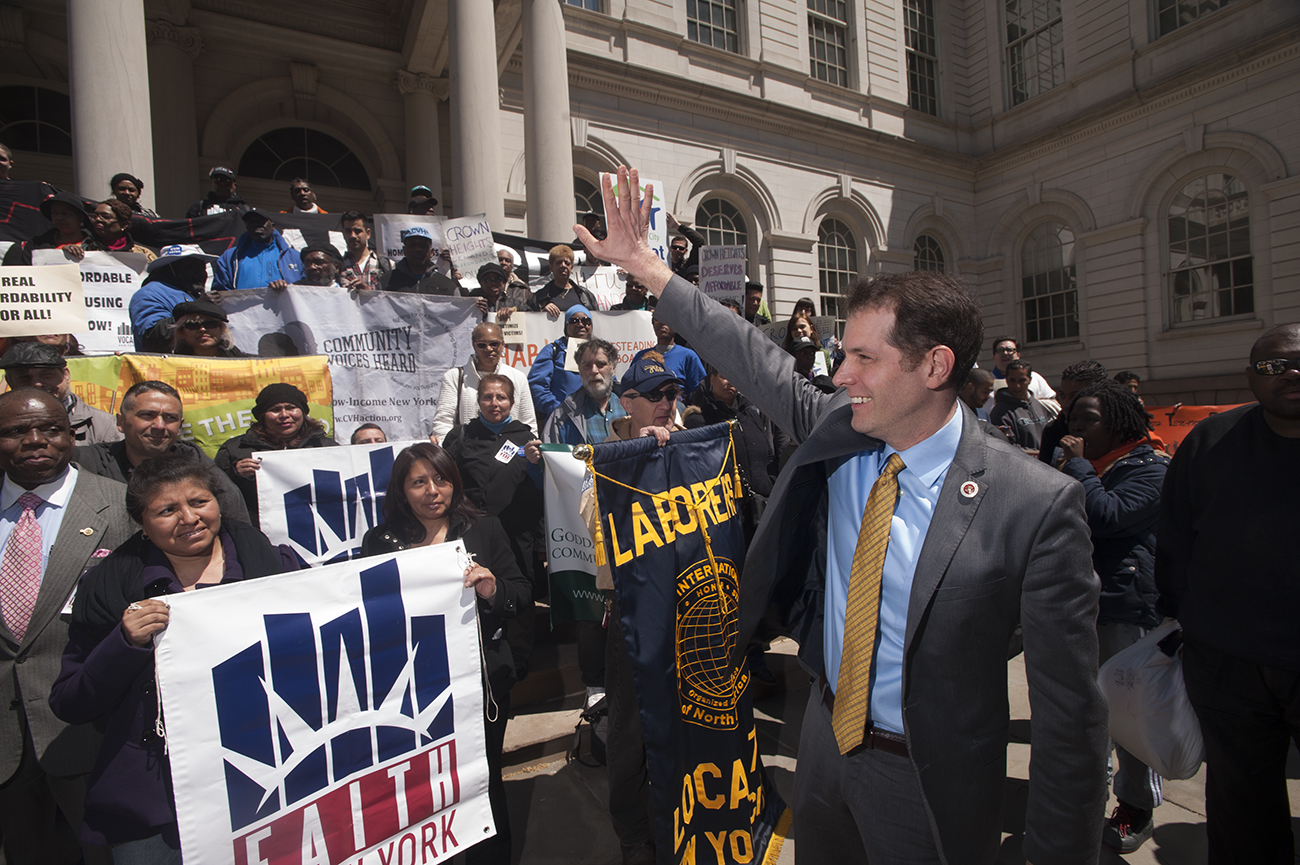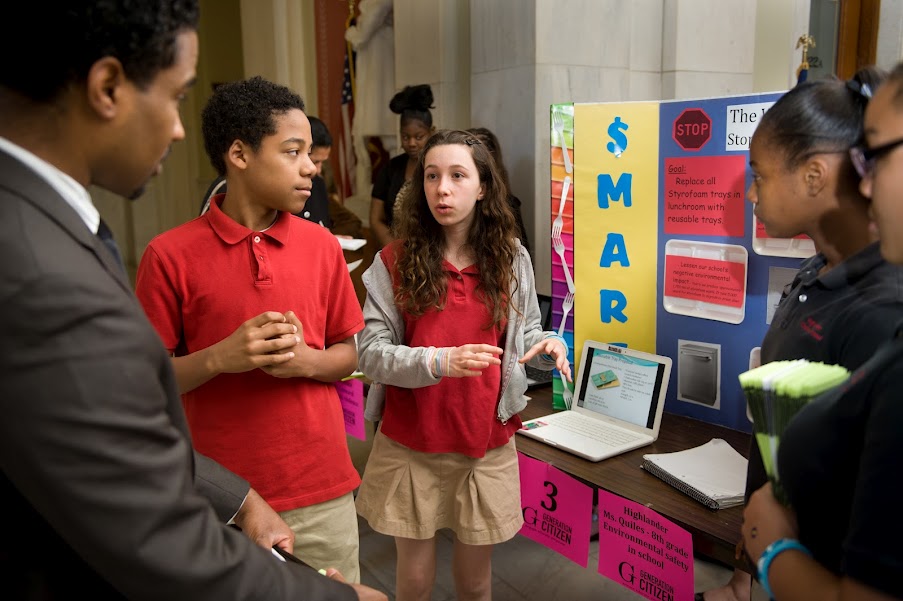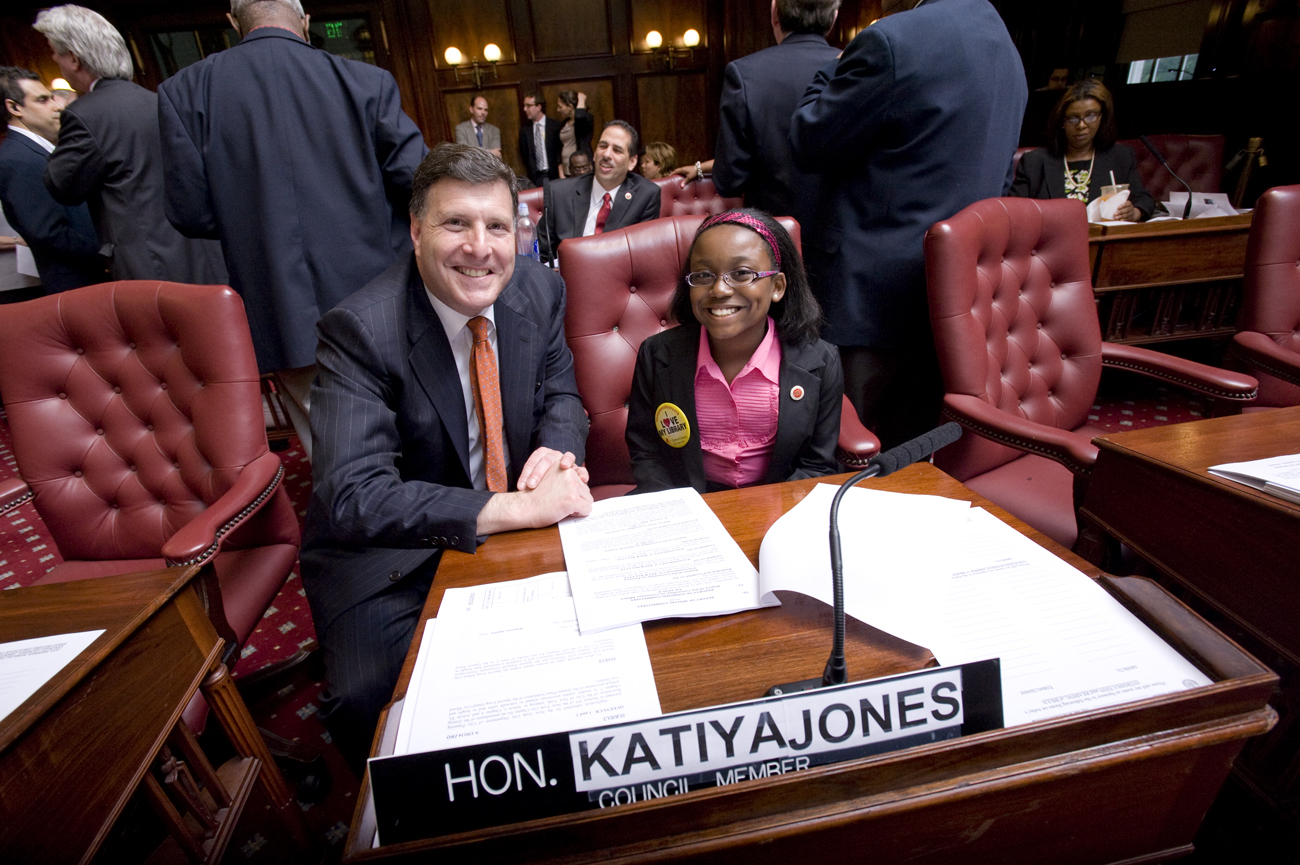Justice Denied: A Call for Action in Our City’s Housing Courts

Council Member Mark Levine, co-author (William Alatriste)
If your only source of information on our legal system were Law & Order, you might believe that everyone going into a courtroom to face a potentially life-changing judicial decision would have the benefit of an attorney.
You would be wrong. The right to counsel applies only in criminal court. In civil court, only those with means have attorneys – and everyone else is left to fend for themselves.
This has clear implications for the fields of immigration, bankruptcy and family law. But it is in housing court (the division of civil court dedicated to ruling on disputes between landlords and tenants) where the impact is breathtaking, with sweeping consequences for New York City.
Fewer than 10 percent of tenants in housing court in the five boroughs have the benefit of legal counsel. In contrast, upwards of 90 percent of landlords citywide have representation. This makes housing court in New York City a dramatically uneven playing field.
New York's housing court system is notoriously byzantine, and is complicated to navigate even for attorneys. Tenants forced to represent themselves on this terrain can have difficulty grappling with even basic procedural matters like filing the necessary paperwork to secure a court date. Failure to do so results in a default judgement in favor of the landlord.
The imbalance in housing court carries a heavy toll for tenants: in 2013 there were nearly 30,000 families evicted from their homes in New York City. This figure is steadily rising, up more than 20 percent in the past decade. Two-thirds of evictees have annual incomes of $25,000 or less. Two-thirds live with children under 18 years of age.
For low-income tenants, the consequences of evictions are devastating. Evictions contribute to our record homeless population and the city's rapid loss of affordable housing. Thirty-seven percent of those admitted to our shelter system are coming directly off an eviction, and the vast majority of these individuals had no attorney during their housing court proceedings.
The majority of evictees live in rent-regulated apartments. Once these homes are vacated, landlords can easily exploit legal loopholes to permanently move the units to market-rate rent for future tenants.
Landlords are all too aware of the uneven nature of housing court. The most unscrupulous building owners regularly initiate legal proceedings based on shaky cases. They bank on the fact that few tenants will be able to afford an attorney and many are intimidated into leaving their apartments rather than face a trial.
Even tenants who win their cases don't necessarily come away unscathed. A small industry of tenant screening companies maintains a "black list" of individuals whose names appear in housing court proceedings. Many landlords in New York City and nationally buy these lists and will refuse to rent to tenants who have had cases brought against them, regardless of the final decision of the housing court judge.
Most elected leaders in New York City support ending this clear injustice. The obvious solution is to provide attorneys for tenants in housing court. But funding concerns have prevented anything more than tiny pilot programs from taking root.
There are, however, compelling economic arguments for implementing such programs. Each bed in our homeless shelters costs $36,000 per year. Developing a single unit of affordable housing costs over $250,000. Yet the price of legal representation in housing court is a comparative pittance, estimated at $1,600 to $3,200 per case.
We are collaborating with our ally and colleague, Councilmember Vanessa Gibson, to address this problem. The Levine-Gibson bill, Intro 214, calls on the City to provide all low-income tenants with attorneys in housing court. A majority of the City Council already co-sponsors this bill.
We are optimistic the momentum for dramatic action on behalf of low-income tenants in housing court will continue to mount. After all, viewers of Law & Order know that the little guy can indeed beat long odds and win the case. Especially when they have a good attorney.
***
Mark Levine is the New York City Council Member for the 7th District in West Harlem and Jaron Benjamin is the Executive Director of the Metropolitan Council on Housing.
Expanding Opportunity for Civic Engagement to the Next Generation

(Students present at a Generation Citizen Civics Day)
One of the best parts about living in New York City is that even though we reside in the biggest city in the country, individual citizens can play a vital role in deciding community issues. An example of this citizen engagement is our 59 community boards, comprised of local civic leaders, which serve to empower residents to address zoning issues, assess the needs of their communities, and offer substantive policy recommendations to their elected representatives.
But currently, community boards exclude one of the most important demographics in our city - young people. Only residents 18 years and older are eligible to be appointed to these boards. The state Legislature is considering bills, sponsored by Senator Andrew Lanza (S04142) and Assemblywoman Nily Rozic (A02448), which would grant up to two 16- and 17-year-olds the opportunity to formally serve on each board. This would ensure that young peoples' voices are heard, while simultaneously demonstrating New York City's support to furthering youth civic engagement. Councilmembers Ben Kallos, Mark Levine, and Ritchie Torres have sponsored a City Council resolution of support, and a public hearing will be held at City Hall on June 9th to discuss the proposal.
The legislation would not mandate the inclusion of 16- and 17-year-olds, but by providing the option, the bill would allow boards to diversify their composition, benefit from diverse input and perspective, and demonstrate their community's value of and investment in their future leaders.
Although the legislation must pass at the state level, city elected officials are doing their part in advocating for the change. Manhattan Borough President Gale Brewer has championed this bill from its inception, and three of her fellow Borough Presidents have pledged their support. It is clear that almost every elected official in New York City endorses this legislation - Albany must act accordingly.
While the bill seems to have overwhelming support throughout New York City and the state, some opponents do argue that young people are not responsible enough for this commitment. It is important to note, however, that this bill does not change the qualifications and high expectations for membership. We should continue to hold our community board members to high standards while also recognizing that some young people are eager for and ready to take on these responsibilities, and that this experience would help them grow as leaders.
New York City Comptroller Scott Stringer served on his community board at the age of 16. He proved ready for this challenge, and this early political training prepared him for an esteemed, long career in public service. Young people make and sustain commitments all the time: sports teams, clubs, jobs, and schoolwork. They can serve on these boards, and do so effectively.
Others argue that young people are not informed enough to weigh in on necessary discussions involving land use and zoning. But community boards must educate all members on these issues, including adults. Young people would be able to provide a different perspective on these topics that might not otherwise be represented.
Finally, opponents say that there is already poor youth (18-21-year-old) participation on boards, meaning that there is no reason to expand the opportunity to others. But the comparison is not quite fair. Many 18- to 21-year-olds are in college, or living on their own for the first time. Sixteen and seventeen-year-olds are, for the most part, much more stable. At the end of their high school years, they have adjusted to managing school and extracurriculars, and they often still have the support and structure of family life to ground them. We should be taking advantage of this life cycle to identify and develop young leaders while they are still firmly part of their communities through school, faith, and neighborhood bonds.
This opportunity may also serve to reinvigorate in-school discussions about civic responsibility and political participation. Knowing that students are eligible for official community board service could encourage teachers to educate students about local government structures and activities, proactively building knowledge of and respect for these institutions among our future civic leaders.
Our communities deserve the best advocates we have, and those advocates might just be carrying backpacks. Let's not hold that against them. The State Senate and State Assembly should pass the Lanza/Rozic bill and send it to Governor Cuomo for his signature this session.
***
Sarah Andes is the New York Site Director of Generation Citizen.
***
@GothamGazette
Submit an op-ed idea or draft to Gotham Gazette executive editor Ben Max: This email address is being protected from spambots. You need JavaScript enabled to view it.
Let's Be Cautious With Local Minimum Wage

Council Member Mark Weprin, the author, and his guest council member for a day (William Alatriste)
During his State of the Union address, President Obama vowed to work with Congress on legislation that would increase the Federal minimum hourly wage from $7.25 to $10.10. A week later, Mayor de Blasio told reporters that he supports legislation that would raise the State's minimum wage from $8 to $10.10 next year. That same bill, now reported to be backed by Governor Cuomo, would also allow local municipalities to set their own rates for the minimum wage.
I agree with the president, the governor and the mayor that the minimum wage needs to be increased. Working families all across the country are struggling to make ends meet and putting more money in their pockets is undoubtedly a step in the right direction. It is outrageous that here, in New York State, retail employees, fast food workers and other minimum wage earners are expected to provide for their families with an $8 hourly wage. The cost of living continues to rise and today's minimum wage is clearly failing to keep up.
At the same time, I have serious concerns about permitting local municipalities to set their own minimum wages. While the concept sounds great in theory, in practice it has the potential to hurt local small businesses and deter businesspeople from opening up new businesses in certain areas of the City.
The Council district I represent encompasses a number of neighborhoods on the Queens County/Nassau County border; the entire district is within a 10-minute drive of Nassau County. Many of my constituents even live within walking distance of the city line. If New York City sets a higher minimum wage, entrepreneurs considering opening businesses in Eastern Queens will have a financial disincentive. Why open a new business in a Queens neighborhood like Floral Park, Glen Oaks, New Hyde Park, or Little Neck when you can simply site the business a few blocks away in Nassau County, where the minimum wage is lower? A similar problem presents itself in neighborhoods across the Northern Bronx, which borders Westchester County, and Staten Island, which is close to New Jersey.
Businesses that are already established in areas on the outskirts of the City will also suffer if the proposed legislation is approved. To compensate for the financial losses caused by minimum wage hikes, business owners will need to increase the prices of their products. Doing so could have a devastating impact on many of the local establishments that operate on thin margins to begin with, as consumers will have cheaper alternatives nearby. The consequences may even be severe enough to put some places out of business.
Raising the minimum wage is a great idea, but we should implement the change for the entire country or at least the whole State of New York. Setting different wages in neighboring cities and towns is a well-intentioned concept that can backfire big time.
***
Mark Weprin is the New York City Council Member for the 23rd council district, in Queens.




